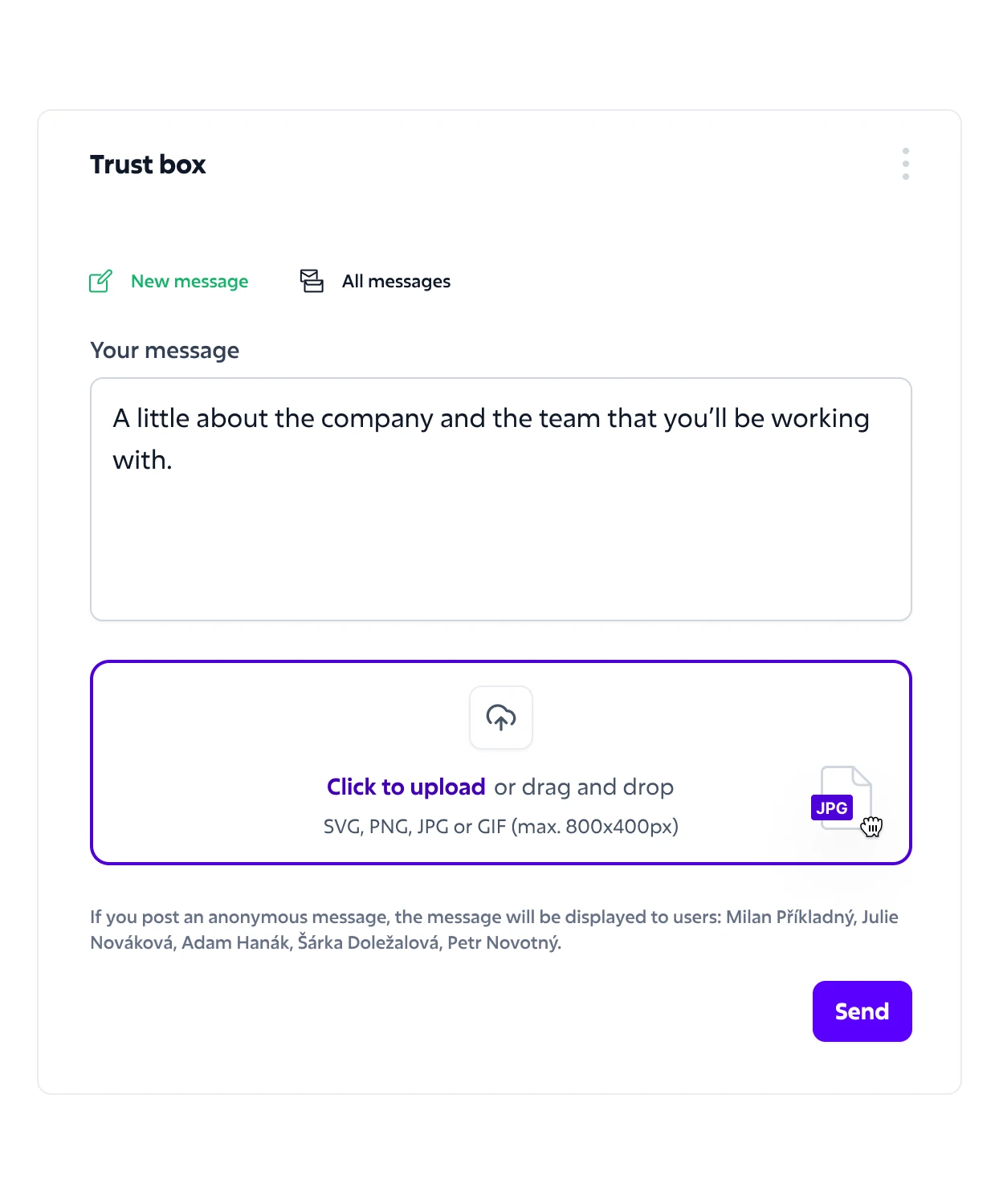Whistleblowing
Whistleblowing, the act of reporting illegal or unethical practices within an organization, is becoming an increasingly relevant topic both in the worldwide. It involves individuals—employees, former employees, or others—disclosing information about unlawful or unethical conduct within their organization. Such conduct can include violations of laws, corruption, abuse of authority, or actions that endanger the safety or health of employees.
The Importance of Whistleblowing
Whistleblowing plays a crucial role in maintaining transparency and accountability within organizations. Some of the main reasons why it is essential to support whistleblowing include:
- Protecting the public: Exposing potentially harmful practices can safeguard public health and safety.
- Promoting ethical behavior: Whistleblowing fosters a culture of ethics and responsibility in organizations.
- Safeguarding stakeholders: Employees and shareholders benefit from the transparency that results from reporting unlawful practices.
Whistleblowing Systems in the Workplace
Many organizations are implementing internal whistleblowing systems to enable employees to report unlawful activity.
1. Trust Boxes
One of the most common whistleblowing mechanisms is the “trust box.” This system can take several forms:
- Online platforms: Secure web applications allowing anonymous reports.
- Physical boxes: Located discreetly within organizational premises.
- Hotlines: Anonymous phone lines where employees can discuss their concerns with experts.
2. Confidentiality and Security
A successful whistleblowing system must ensure:
- Confidentiality: The whistleblower’s identity must remain protected unless they agree to disclosure.
- Data security: Reports must be safeguarded against unauthorized access and tampering.
EU Whistleblowing Directive
In 2019, the European Union adopted a directive to protect individuals reporting breaches of EU law. This directive sets minimum standards for member states to protect whistleblowers, aiming to ensure individuals can speak up without fear of retaliation.
Challenges Associated with Whistleblowing
Despite legal protections, whistleblowing often faces several challenges:
- Fear of retaliation: Many individuals worry that reporting wrongdoing might lead to dismissal or other forms of retribution.
- Dilemmas about correctness: Deciding whether to report can be mentally taxing as individuals often fear how their colleagues and superiors will react.
- Lack of awareness: Many people are unaware of their rights as whistleblowers and the available support mechanisms.
How to Report Effectively
Only courageous and well-structured reports can bring about real change. Here are some tips for effective reporting:
- Gather evidence: It is crucial to have specific information and proof of misconduct before making a report.
- Choose the right channel: Decide whether to report the issue internally or externally based on the severity of the situation.
- Consult an expert: It’s advisable to speak with a lawyer or an organization specializing in whistleblower protection to ensure appropriate action is taken.
Key Aspects of Whistleblowing Legislation
Protection of Identity
One of the most significant aspects of whistleblowing legislation is the protection of whistleblowers’ identities. The law stipulates that whistleblowers’ identities must remain confidential, and any form of retaliation against them is prohibited. This includes discriminatory practices that could harm their professional standing or personal life.
Reporting Channels
The law also establishes clear provisions regarding different reporting channels. Whistleblowers can report their concerns internally through organizational mechanisms or externally to relevant state institutions or non-profit organizations specializing in whistleblower protection.
Whistleblower Rights
The legislation guarantees several rights for individuals who report misconduct, including:
- Legal assistance: Whistleblowers have the right to legal support.
- Compensation: They can seek damages in cases of retaliation.
- Information: Whistleblowers are entitled to know the outcomes of their reports.
The Role of Trust Boxes
As mentioned earlier, whistleblowing is becoming an increasingly important tool for exposing unlawful or unethical behavior. A critical component facilitating this process is the “trust box,” which provides a confidential and anonymous way for individuals to report concerns without fear of retaliation.
Key Features of Trust Boxes
- Confidentiality: Ensures the whistleblower’s identity remains anonymous, crucial for protection against retaliation.
- Accessibility: The system should be easily accessible to all employees, enabling anonymous reporting.
- Security: Information submitted through the trust box is encrypted and protected from unauthorized access.
Introducing trust boxes in organizations promotes transparency and accountability. Employees feel more secure when they have a safe and confidential way to report their findings. Whistleblowing via trust boxes can help uncover corruption, fraud, harassment, or violations of working conditions, enabling organizations to respond swiftly to potential issues.
Conclusion
Whistleblowing plays a vital role in protecting the public interest and promoting ethical standards in the workplace. With new legislative measures and laws, the safety and trust of individuals who decide to speak out are increasing. Protecting whistleblowers is essential for ensuring transparency and accountability, not only in companies but also in public institutions.
In the context of whistleblowing, this practice is key to protecting the public interest and strengthening ethical culture within organizations. With growing legislative support and increased trust in whistleblowers, this practice is expected to gain importance and positively influence society as a whole. It is essential for organizations to emphasize transparency and accountability and to create an environment where employees are not afraid to voice their concerns.












